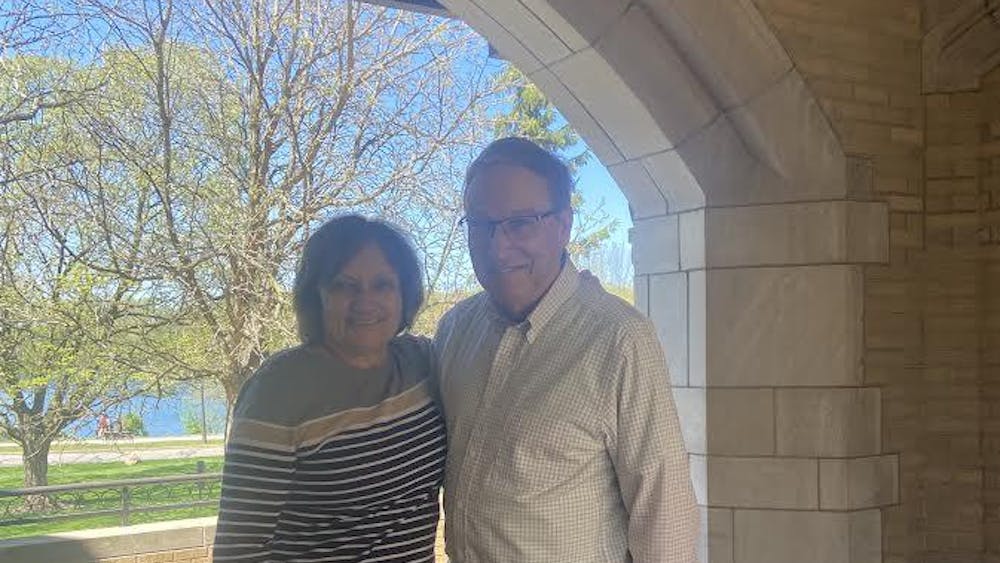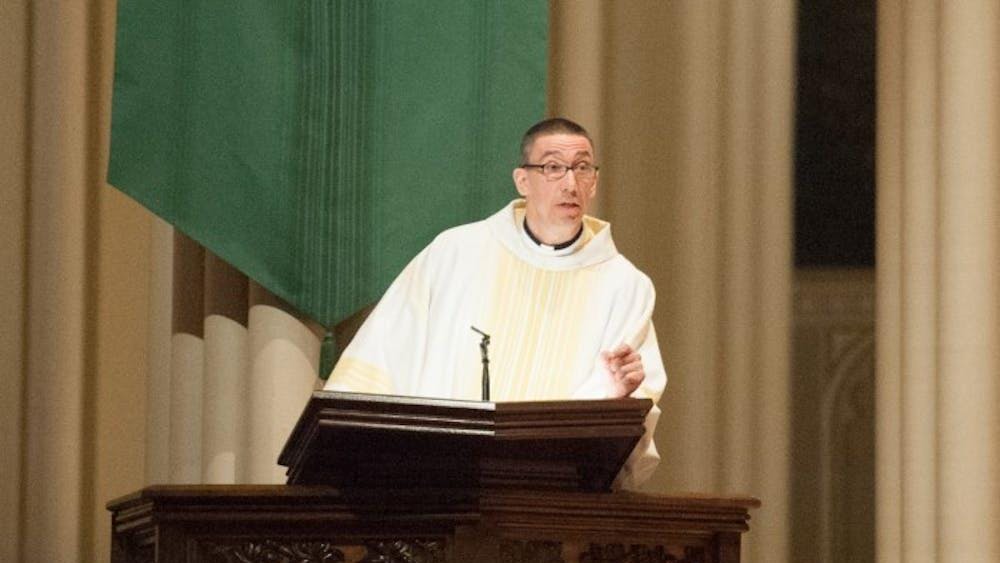A recent survey by the Community Campus Advisory Coalition (CCAC) gathered information on local college students' perceptions of South Bend, which CCAC said will be used "to improve the student experience in South Bend and increase the city's ability to retain students after graduation."
The data was collected from more than 3,500 students at Notre Dame, Saint Mary's, Holy Cross College, Bethel College, Indiana University South Bend, Ivy Tech Community College, Purdue College of Technology South Bend and Indiana University School of Medicine (South Bend).

On a scale of one to seven, students rated South Bend 3.64 as a city, the survey results stated. They gave a 4.17 when asked how well they feel they know South Bend and a 4.31 about whether they feel South Bend is a positive place to receive an education. The lowest number, 2.53, corresponds to whether students would consider living in South Bend following graduation.
Notre Dame student body president Alex Coccia said he thinks of the relatively small survey as "a first snapshot" and a starting point for continuing to organize student feedback mechanisms. Coccia said his administration has been planning to emphasize community engagement, especially with the incoming class of 2017.
"Obviously, the more time students spend in South Bend, the better perception they have of the city," he said. "That's why we really want to focus on freshman engagement in South Bend, whether that's the freshman bus tour we want to do or a student government night out at the Silver Hawks game solely for the freshmen in that first week when they're here.
"We figure if freshmen and sophomores have good experiences with South Bend then when they move off campus as juniors and seniors, they already know about being good neighbors [and] they already know what's available. It just creates a better environment."
The survey said the top three reasons for students not residing in South Bend after graduation were employment, entertainment and safety. Timothy Sexton, Notre Dame's associate vice president for state and local public affairs, said the results seem consistent with his previous experiences at the University.
"On a daily basis, we hear about what people want in a 'cool' community - they want jobs, safety and a fun atmosphere," he said. "All those things come together to make a really nice community, and it's not a surprise [to me] that it was articulated in this survey."

Sexton reiterated Coccia's thoughts on engaging freshmen in the community, pointing to the bus tour guided by community leaders as a primary example of outreach he believes will be beneficial.
"We need to expose them to [South Bend] and show them what's beyond just the campus here at Notre Dame ... and at all the local higher-education institutes," he said. "There's more than just the campus. There are a lot of opportunities to take advantage of."
The results of this survey are a "good benchmark" in the city's ongoing efforts to keep graduates around, Sexton said. According to Coccia, retaining recent graduates from the area schools is one of South Bend Mayor Pete Buttigieg's major projects, preventing what Buttigieg calls "brain drain."
"Part of the takeaway and action items from this survey is [asking ourselves], 'Okay, how can we get thorough student feedback ... about what it is that's going to make South Bend this increasingly cool place so they'll want to stay in the city?,'" Coccia said.
Sexton said the survey results concerning economic development align with Notre Dame's focus on research and innovation.
"These results affirm the direction we've been taking ... in the last few years, with the University's research becoming a growing focus," he said. "A lot of the economic development comes from the research done on campus and cultivating that in the businesses that are expanding in our community. They're always looking to hire new people and bring in new innovation."
Thirteen percent of respondents said they do not spend any time in the city, while 30 percent spend 1 to 2 hours, 22 percent spend 3 to 5 hours and 11 percent spend 6 to 10 hours. The survey said 24 percent spend more than 10 hours per week in South Bend.
According to the CCAC's analysis, "the hourly breakdown of activities [reported] truly shows the immense impact of students in the South Bend community." The data showed that with approximately 30,000 students in the South Bend area, students contribute more than 45,000 hours of community service per week and spend more than 60,000 hours supporting local restaurants.
There is a difference between students' perceptions of the city and the reality beyond campus, Coccia said. He plans to review the data with his administration and the Co-Campus Council, which gathers representatives from Notre Dame, Saint Mary's, Ivy Tech and Indiana University South Bend, and "make positive suggestions for the city using this data."
Coccia said student government's efforts to promote projects and commitments that go beyond ordinary service activities have the potential to affect students' perceptions of the city and its residents in positive ways.
"It's all about building relationships with people and building this mutual commitment with residents of South Bend, so it's not just a one-and-done service project," he said. "It's about building those relationships and working on something with meaningful impact, ... and I think Notre Dame students would be especially prime for that kind of interaction."
Contact Ann Marie Jakubowski at ajakubo1@nd.edu











